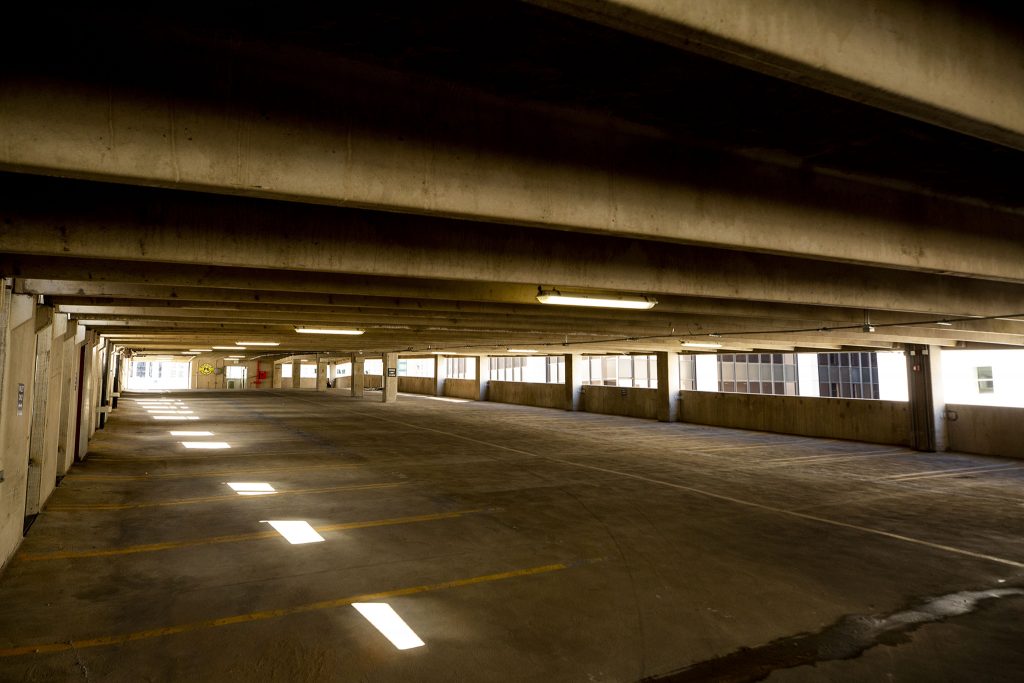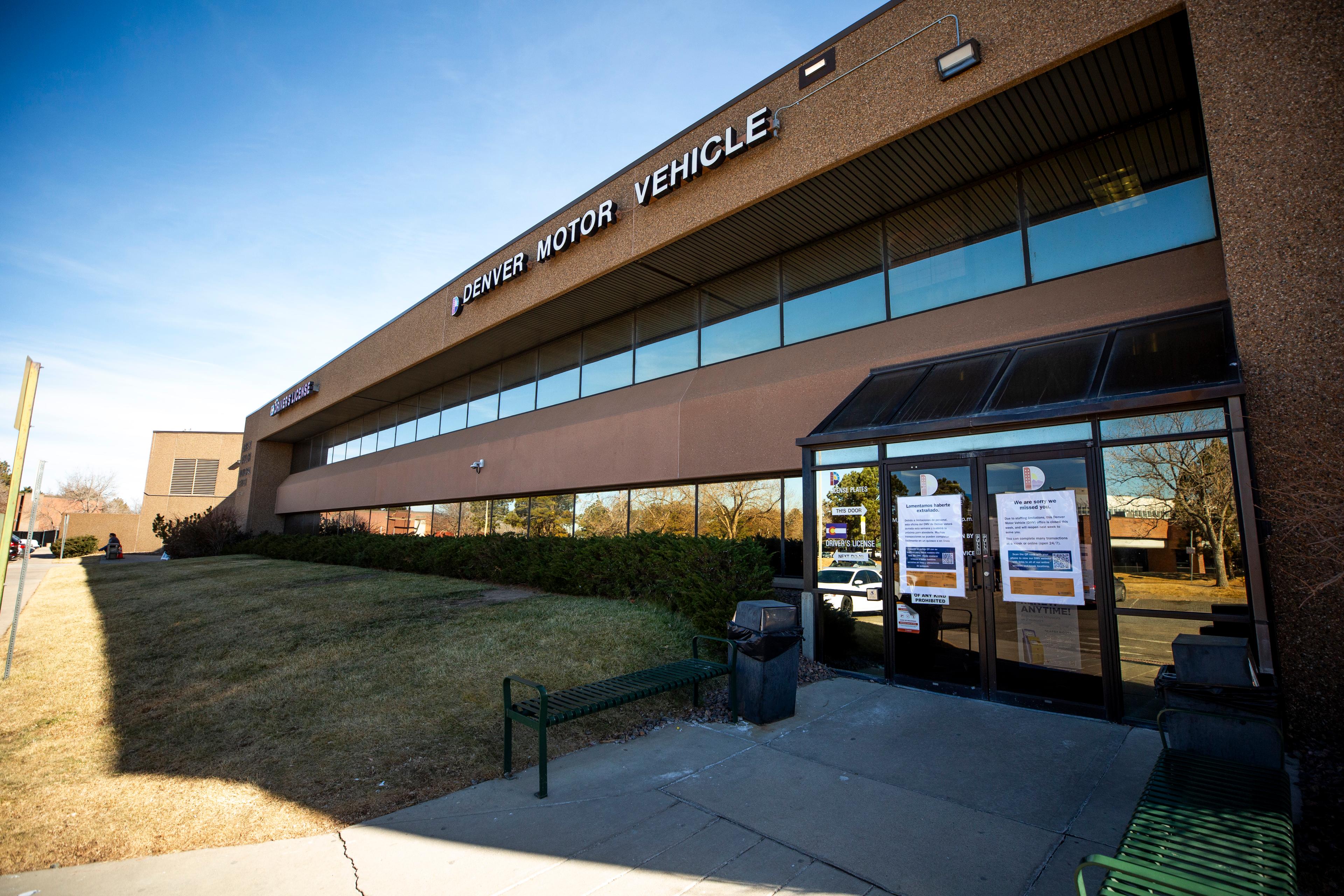
Denver’s office values are cratering, according to new data from the county assessor. Nobody’s really sure how much further they’ll fall, or how the slide will reshape the city’s skyline.
Office property values are down between 10 percent and 25 percent since the last time they were assessed for tax purposes two years ago, according to Denver county assessor Keith Erffmeyer. Some are down even more, he said.
It’s hard to generalize when it comes to commercial real estate values. On one end of the spectrum are older office buildings that need a lot of updating. On the opposite end are new buildings with amenities like outdoor space, gyms, modern finishes and food options in desirable locations.
“It'd be like if you were holding a rubber band and you were holding one finger steady and pulling it down with the other,” Erffmeyer said. “We've seen the top of the market, I would say, hold value and remain relatively flat, while we've seen the bottom end kind of really sag.”
No surprise: empty spaces
A stubborn glut of empty space is the problem. Remote work has stuck around in some form since the pandemic first pushed people out of the office more than five years ago, which means companies simply don’t need as much space.
The overhang of outdated space that nobody seems to want is a challenge for city leaders as they try to pull Denver out of a slump that started during the pandemic. On top of that, lower property values means less tax revenue to pay for things like schools. Ultimately, if there’s a shortfall in property taxes, the money has to come from somewhere else.
More people are back in the office compared to a couple of years ago. But not enough of them to make a dent in the amount of unused office space piling up in Denver. More than one-third of the office space downtown is sitting vacant, according to CBRE, a real estate services company.
Landlords around the city are starting to give up on their office properties. Office buildings come with big mortgages. Some building owners are defaulting on those loans because it's no longer worth it to keep making payments. At the same time, it’s hard to refinance loans because interest rates are high.
Tough market
“We've seen lenders take buildings back, buildings go to auction, things like that,” Erffmeyer said.
That wasn’t happening the last time property values were assessed in 2023, he said.
“None of that really had worked itself through the market yet. And now we’ve seen that work itself through the market,” Erffmeyer said.

When office workers first started working from home, building owners waited to see what was going to happen, he said. Now, a lot of leases are expiring, Erffmeyer said, and tenants are moving or reducing the amount of space they lease.
It can take a long time to figure out what to do with these buildings after a default. Take the Wells Fargo Center, known as the Cash Register Building. The property has been in limbo since the owner defaulted nearly two years ago.
Drag on downtown
The Downtown Development Authority, which previously financed the revitalization of Union Station, is poised to pump $570 million into the effort to revive downtown Denver. That includes money to turn empty commercial space into apartments.
But turning offices into apartments isn’t a straightforward project. Many office buildings aren’t suitable as living quarters because they weren’t designed with that in mind. For example, offices aren’t built to distribute natural light throughout the property the way apartment buildings are.
“When we look at what might happen to those [older] buildings, some might be candidates for conversion, certainly not very many of them,” said Jeannie Tobin, the director of market analytics for Denver at CoStar, a real estate data company. “Those are few and far between … Office owners are going to have to get pretty creative when it comes to those older legacy buildings … especially the larger ones.”
Values could continue to fall
In the meantime, office values in Denver could drop further, according to Jerrold Bregman, a business attorney and partner at BG Law in Denver. When landlords default on their mortgages, those buildings eventually have to be sold to a new owner.
“The big picture is that the owners are losing properties and then the property is going to be ultimately resold,” he said. “If supply goes up, the price is going to go down.”

It’s not all bad news for Denver’s office landlords, according to CoStar’s Tobin. There are more new leases being signed now than there was a year or two ago, she said. They’re not obvious in the data because they tend to be relatively small, she said.
Any activity is a bright spot in the gloomy office landscape these days. But there’s a long way to go to fill the void. That doesn’t have to be a bad thing, according to Bregman of BG Law. Eventually, prices will fall enough to lure investors that can put the land to better use, he said.
“At some point, the market will respond to the economics … And that presents an opportunity,” he said.
- Vacancy rate of Denver office space going up as empty space accrues in downtown
- The big office building purge seems to have skipped the Cherry Creek neighborhood as developers continue flocking to the area
- A new reality for downtown Denver’s half-empty buildings: ‘The value’s not gonna go back to what it used to be’
Funding for public media is at stake. Stand up and support what you value today.








